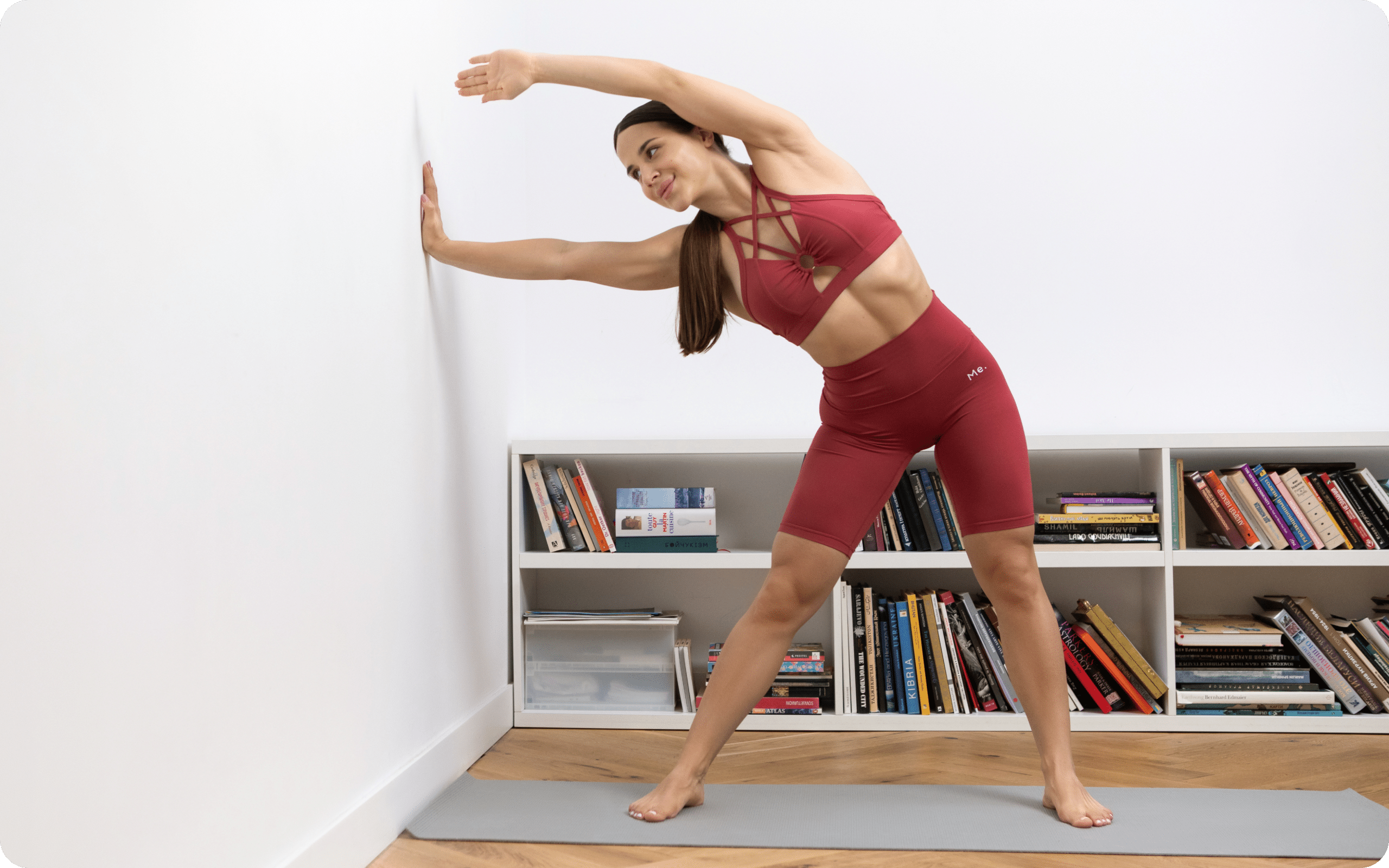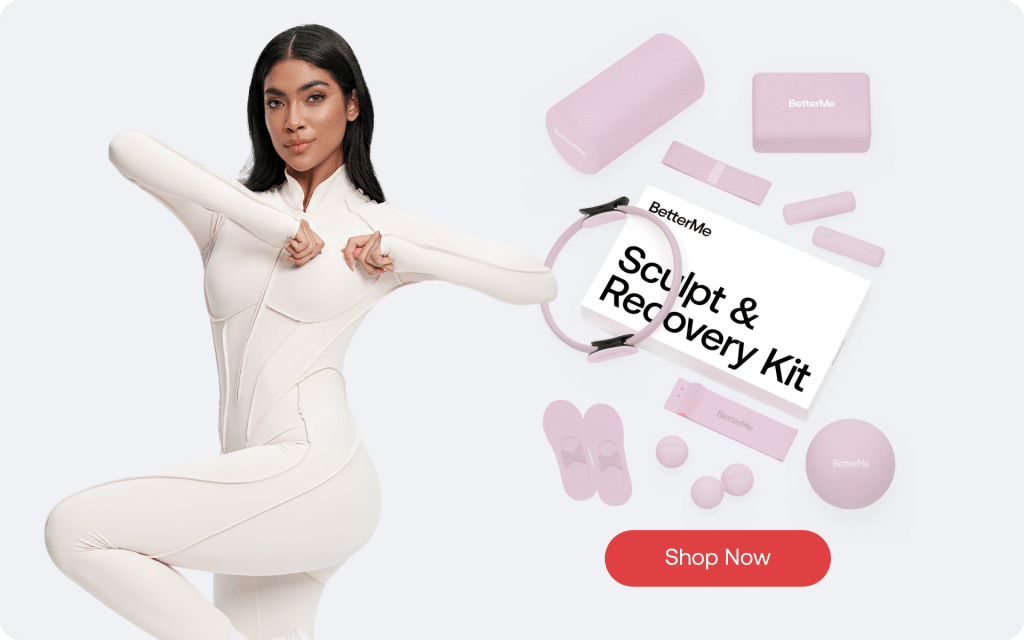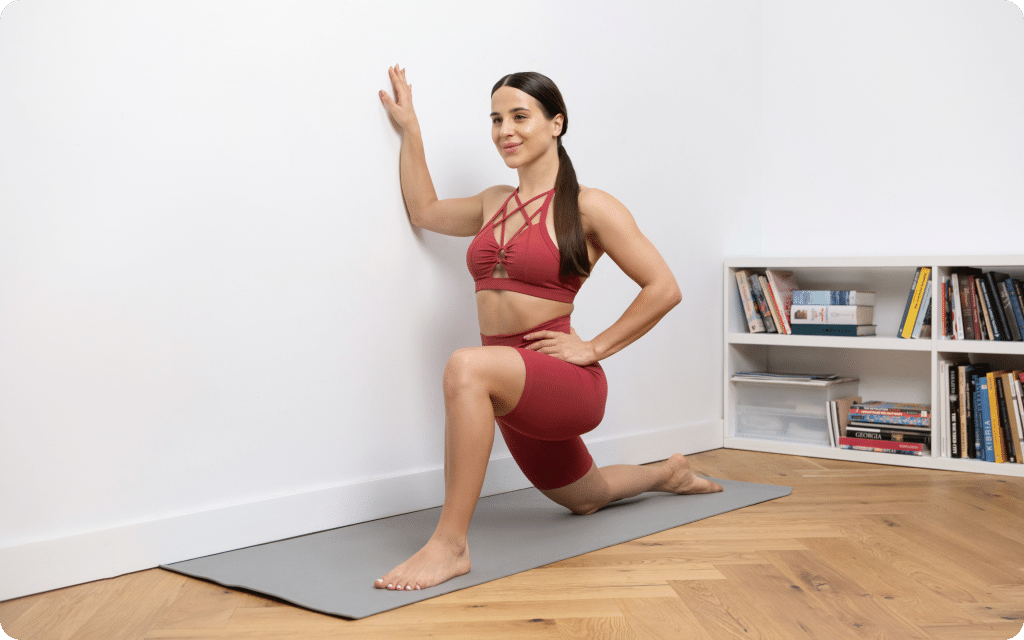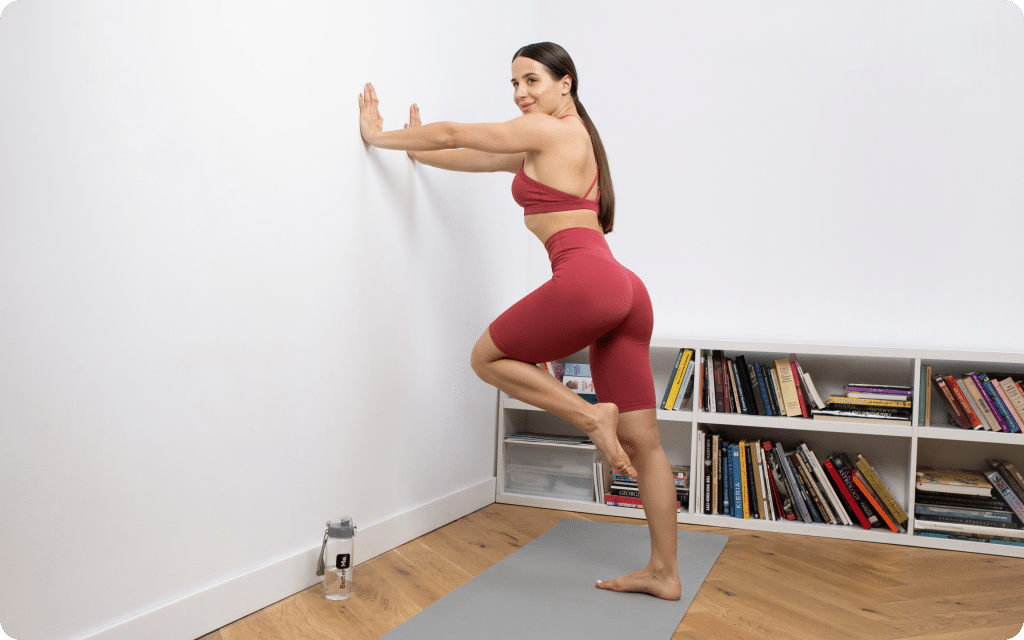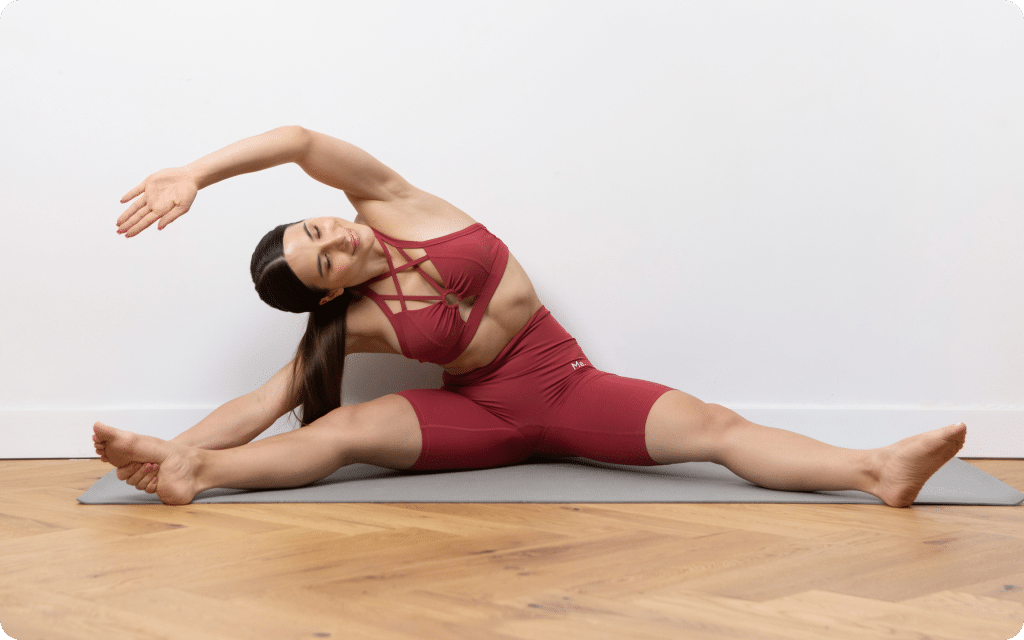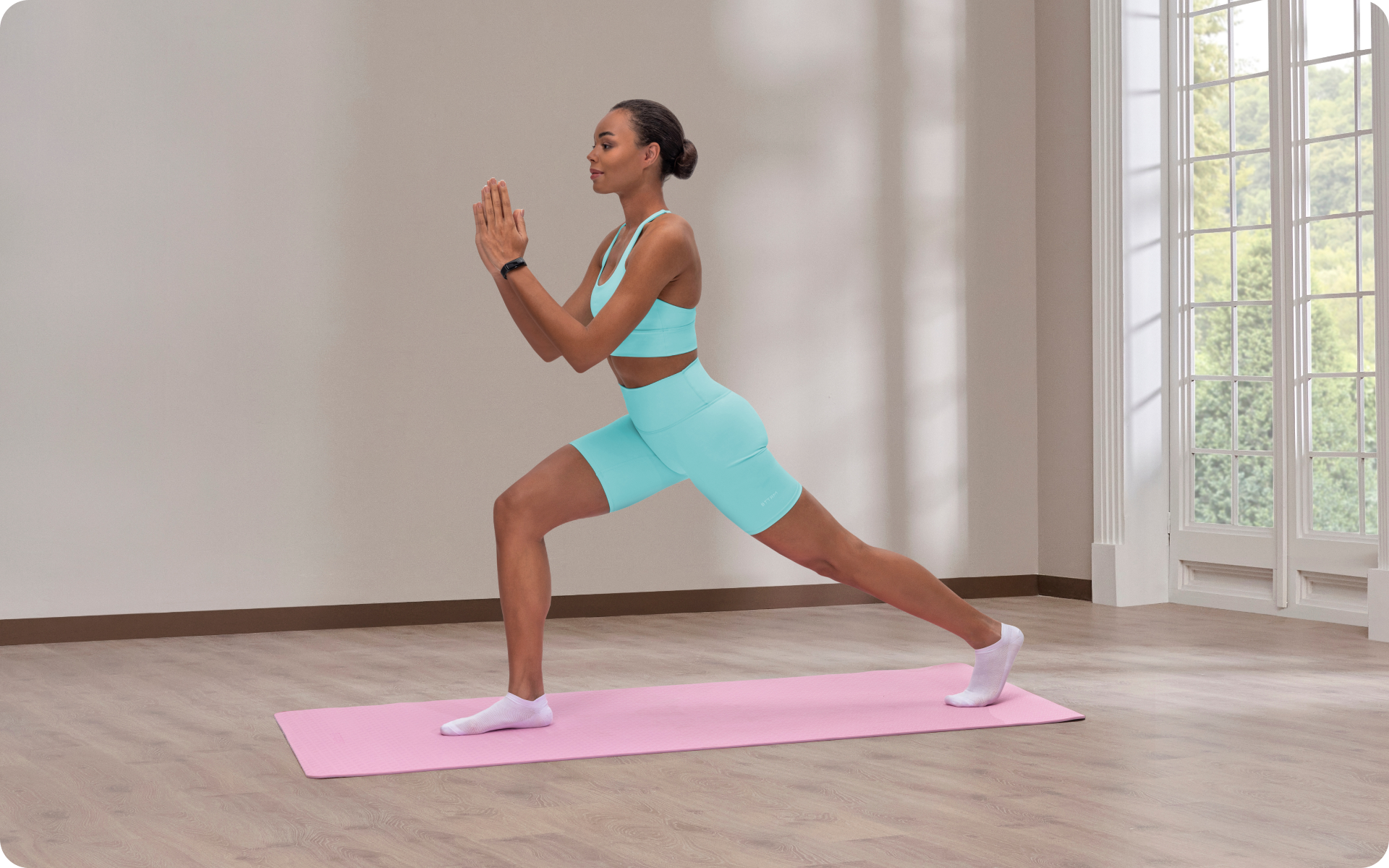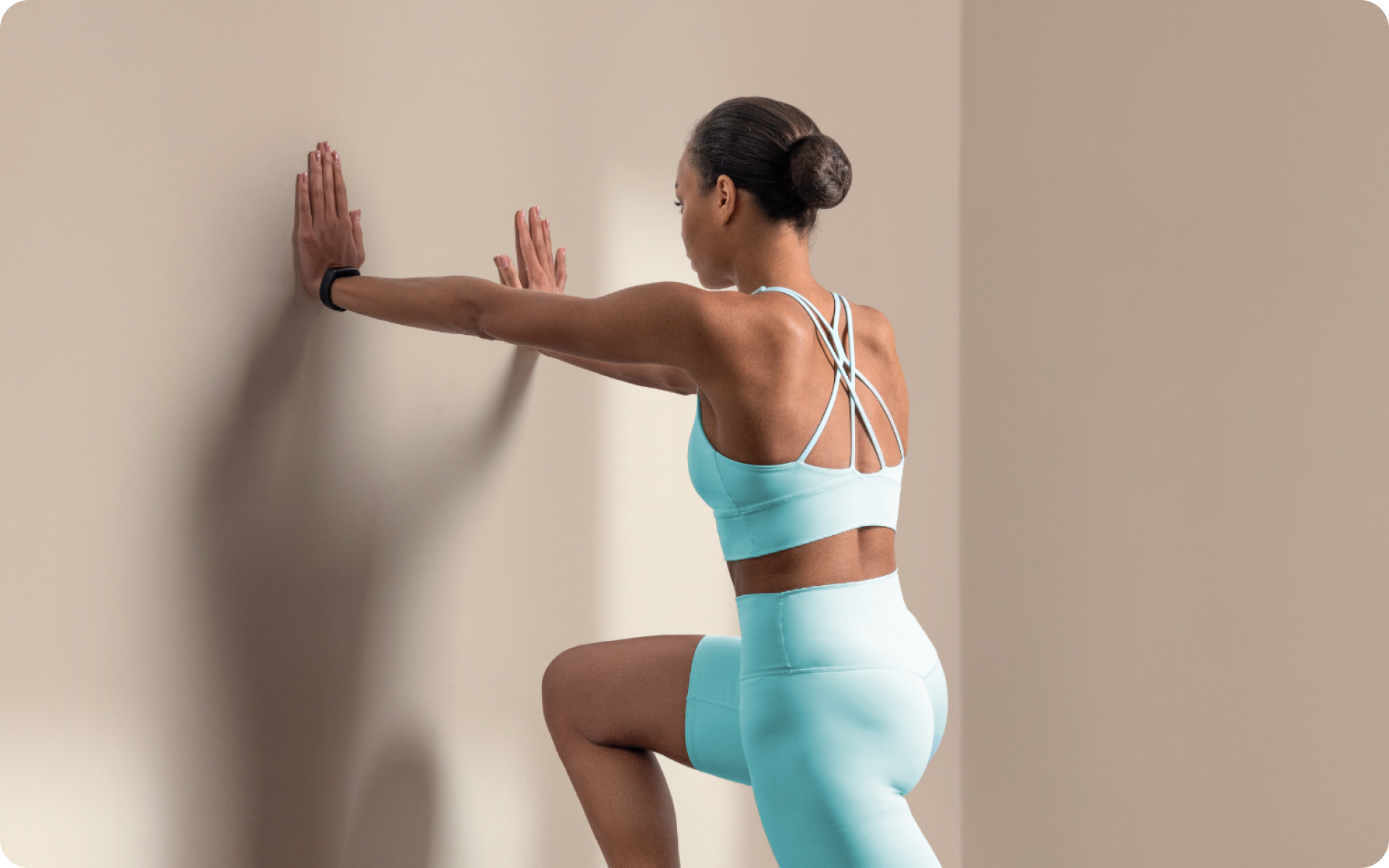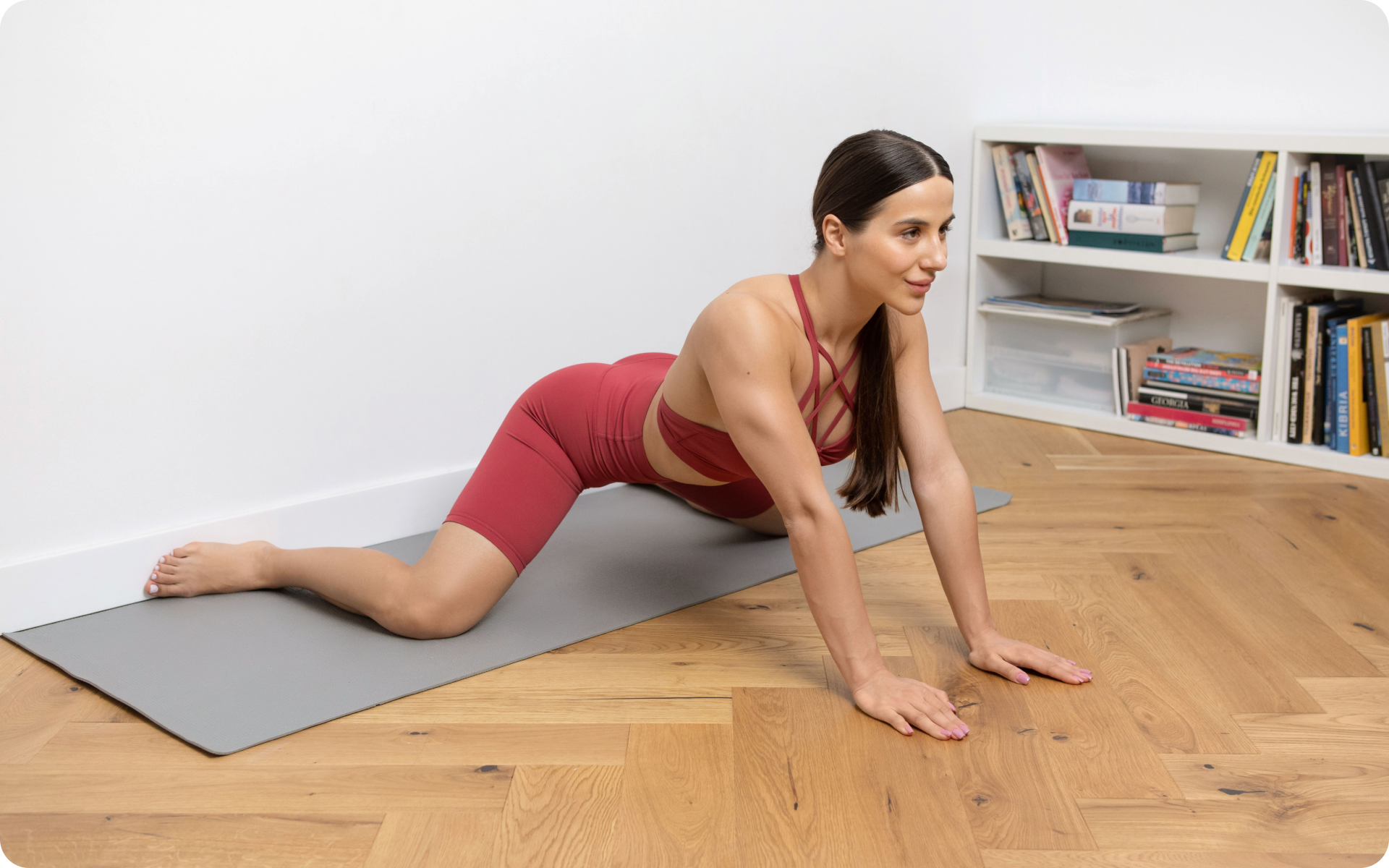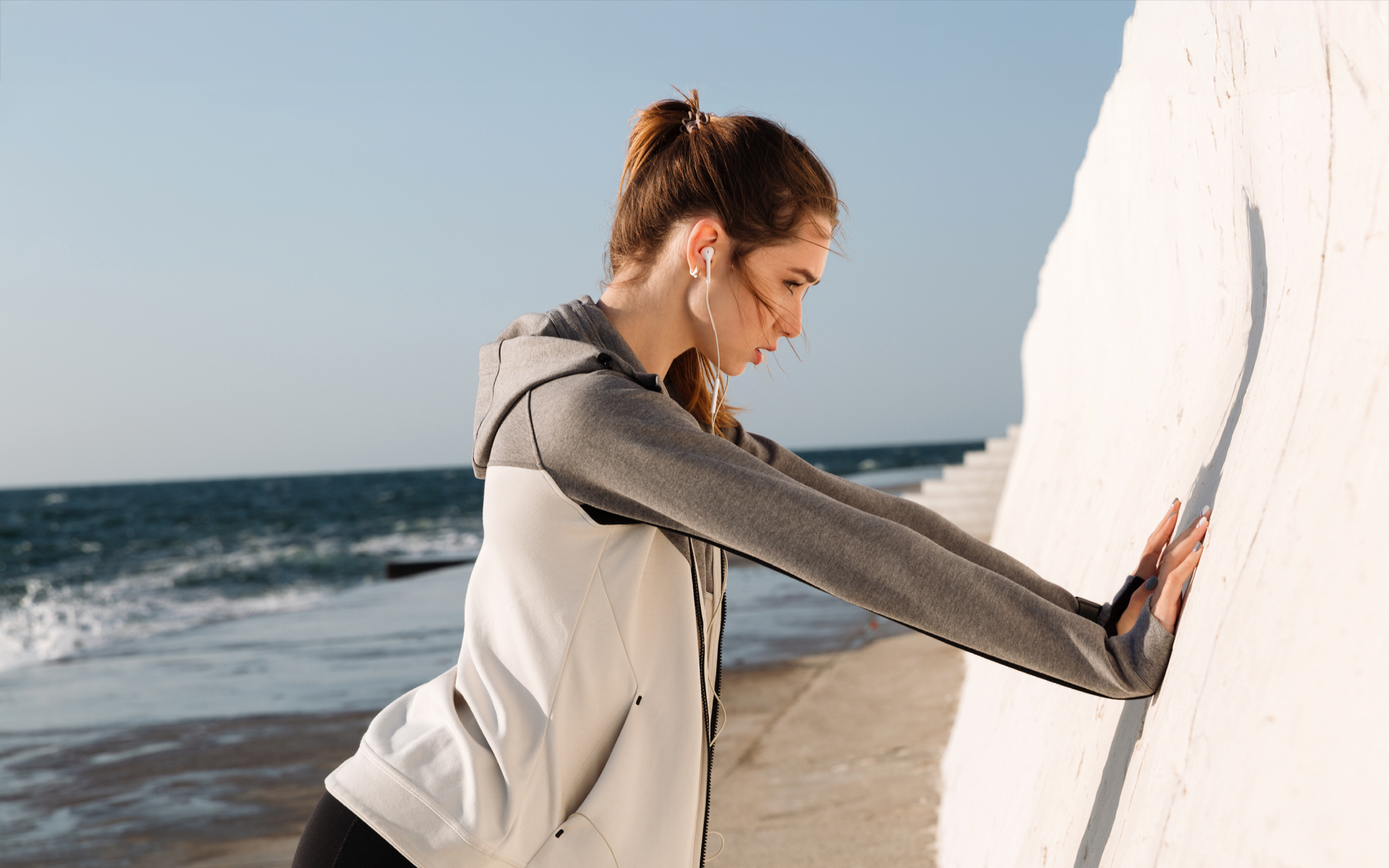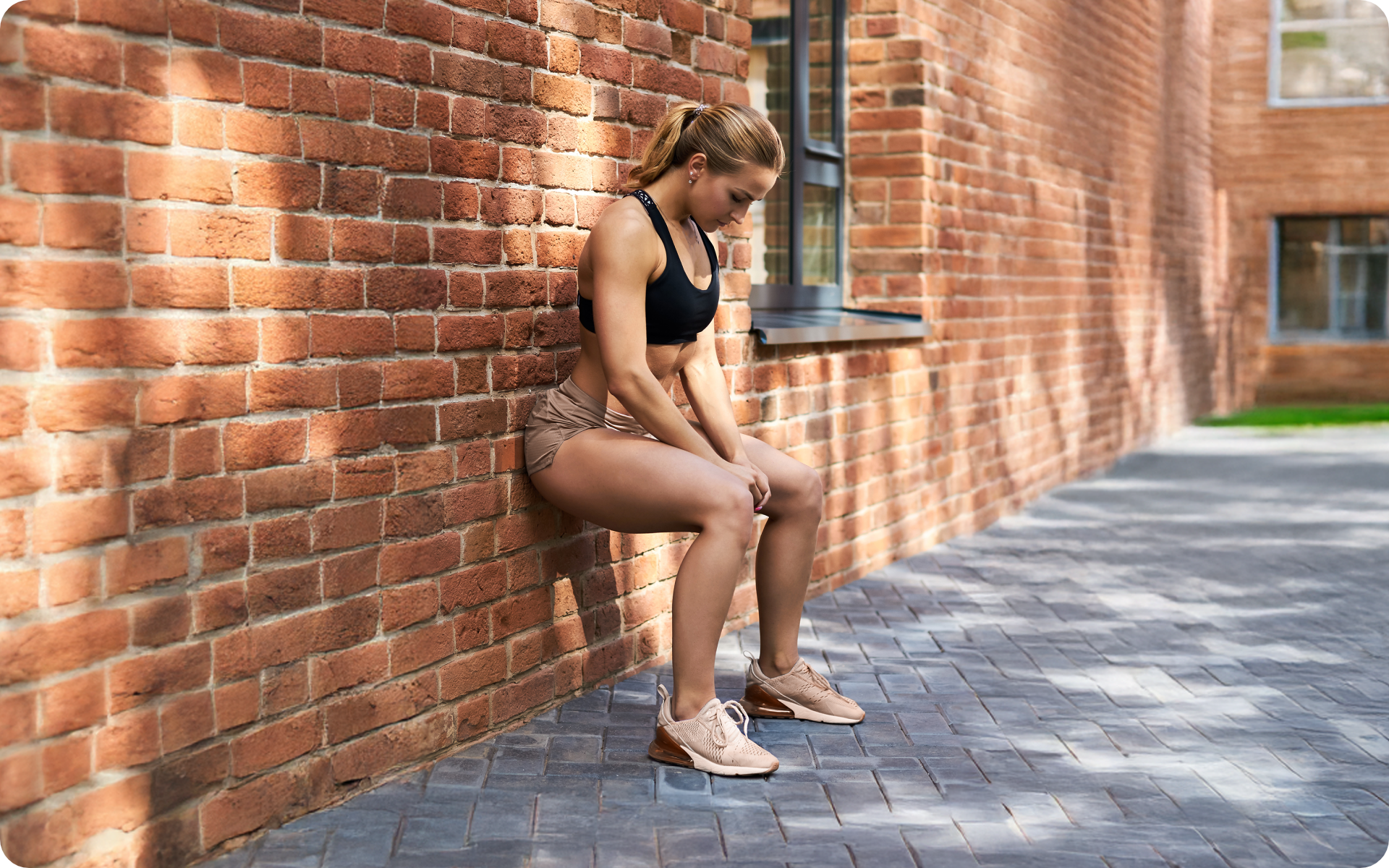Abs are an elusive muscle group for many fitness enthusiasts and are often seen as a symbol of ultimate physical fitness. These muscles, by the way, are glorified at the expense of other equally important muscle groups that play a critical role in our posture, balance, and overall strength.
However, developing a chiseled six-pack requires not only consistent training but also a variety of exercises to strengthen different parts of your core.
That said, a wall Pilates ab workout isn’t entirely a bad idea. It’s in fact, a great way to utilize an easily accessible tool for efficient core strengthening.
But which wall Pilates ab exercises will give you the most bang for your buck?
We’ve compiled a list of six effective wall Pilates ab workouts that you could include in your routine. These exercises promise to challenge your core in new ways and help you achieve those coveted abs.
Is Wall Pilates Good for Abs?
Yes, wall Pilates is good for toning the abdominal areas and making the abs more visible. Using wall exercises for abs for beginners and pros guarantees that:
You’re Engaging Multiple Muscle Groups
Wall Pilates does not isolate the ab muscles, but rather, it encourages the engagement of multiple muscle groups. What many don’t realize is that your “abs” are made up of many muscles and are only part of the equation that forms the core. Your abdominal muscles include the transverse abdominis, obliques, and rectus abdominis.
Wall Pilates abdominal exercises target all of these muscles, helping you to build a stronger core in the process.
Such a holistic approach results in a more balanced and comprehensive workout. As you work your abs, you are also strengthening the supporting muscles in your back and hips, thereby promoting better posture and potentially reducing the risk of injuries.
In addition, the engagement of multiple muscles at once can increase calorie burn, which aids in fat loss, over time, making those abs more visible.
If you struggle to even flirt with the idea of giving up your favorite foods or working out till your legs give way – BetterMe app is here to breathe a fresh perspective into the way you view the weight loss process! Check out the app and experience the fun side of fitness and dieting with BetterMe!
You’re Enhancing Body Awareness
Wall Pilates exercises require precision and control, prompting you to become more aware of your body and its alignment.
This heightened body awareness, or proprioception is beneficial for maintaining good form and preventing injuries.
When you consciously engage your abs and focus on aligning your body against the wall, you are likely to activate the deeper and often neglected abdominal muscles, contributing to a more defined and strong core (6).
You’re Building Core Strength and Stability
Incorporating the wall in your Pilates routine provides a form of external resistance, challenging your core muscles to work harder. This added challenge can lead to increased strength and stability in your abs.
Furthermore, the wall provides tactile feedback, guiding you in maintaining proper form and alignment, which is crucial in effectively targeting the abs.
You’re Improving Flexibility and Mobility
Wall Pilates exercises often involve dynamic movement, which can help enhance your flexibility and mobility.
Improved flexibility can aid in performing ab-targeting exercises more effectively, while increased mobility can reduce the risk of injuries. The combination of flexibility and strength that Pilates promotes is vital for achieving a well-defined and functional core.
You’re Utilizing an Accessible and Versatile Tool
The wall is an easily accessible tool that can be utilized in various ways to target your abs. It’s a versatile tool that can cater to different fitness levels.
For beginners, the wall provides support and guidance in performing exercises, while more advanced individuals can use the wall for added resistance or in executing more challenging variations.
You’re Adding Variety to Your Workout
By incorporating wall exercises in your routine, you’re adding variety to it which not only keeps your workouts interesting but also challenges your muscles in different ways. This is important because muscle adaptation can lead to a plateau in your fitness progress.
By constantly varying your workouts, you are more likely to continue progressing and see those coveted abs sooner.
Does Wall Pilates Help Lose Belly Fat?
Yes, wall Pilates can aid in losing belly fat. It is a full-body workout, and like any other form of physical activity, it burns calories. It may not burn as many calories as high-intensity workouts like running or cycling, but it still contributes to total calorie burn.
More importantly, Pilates, including wall Pilates, can help to build lean muscle mass (6).
Building muscle mass is key to increasing your resting metabolic rate, which is the rate at which your body burns calories at rest. The more muscle you have, the higher your resting metabolic rate, which means you’ll burn more calories even when you’re not actively exercising (3).
Moreover, wall Pilates promotes better posture, which can help your abs look and feel flatter. It also engages the deeper core muscles that are often neglected in traditional ab workouts. Working these muscles can help create a tighter, flatter belly over time.
However, no amount of Pilates or any other specific exercise can outdo a poor diet. Remember, achieving a toned belly is a two-pronged effort that involves both losing fat and strengthening the abdominal muscles.
Also, when you start losing fat, your belly may not be the first area to see results. Unfortunately, we can’t choose where we want to lose fat. But as long as you follow your diet and exercise plan, you’ll eventually see results all over, including your belly.
How Do You Do The Wall Exercise for Belly Fat?
Wall Pilates exercises for belly fat involve engaging your core muscles against the resistance provided by the wall. This is achieved by performing a series of movements that target the abdominal muscles, specifically the rectus abdominis, transverse abdominis, and obliques.
1. Wall Plank
Target muscle: Rectus abdominis
Originating from the traditional plank exercise of Pilates, the wall plank involves the utilization of the wall as a form of resistance. It is an effective core workout due to its ability to engage multiple muscle groups simultaneously.
Execution steps:
- Stand facing the wall.
- Place your hands on the wall, shoulder-width apart.
- Walk your feet back until you’re in a plank position, angled towards the wall.
- Engage your abs and make sure your body forms a straight line from your head to your heels.
- Hold this position for 30 seconds to a minute.
- Rest and repeat for the desired sets.
2. Wall Push-ups
Target muscle: Rectus abdominis, transverse abdominis
Wall push-ups are adapted from traditional push-ups. They are a beginner-friendly exercise that targets both the abs and the upper body. The resistance from the wall, combined with the engagement of the core, makes this a great wall Pilates for belly fat beginner’s workout.
Execution steps:
- Stand facing the wall.
- Place your hands on the wall at chest level, slightly wider than shoulder-width apart.
- Keep your feet rooted on the ground as you bend your elbows and lower your chest towards the wall.
- Engage your abs and keep your body straight as you push yourself back to the starting position.
- Repeat for the desired number of repetitions.
3. Wall Mountain Climbers
Target muscle: Rectus abdominis, obliques
Wall mountain climbers incorporate a dynamic movement that targets the abs, specifically the obliques. This exercise is great for burning belly fat and building core strength.
Execution steps:
- Stand facing the wall.
- Get into a high plank position with your hands on the wall.
- Engage your abs as you bring one knee towards your chest.
- Return your foot to the ground and repeat the movement with the other leg.
- Continue alternating legs for the desired number of repetitions.
Read more: 10 Wall Pilates Arms Exercises, and Everything Else You Need for Toned Arms
4. Wall Sit With Ab Twist
Target muscle: Rectus abdominis, obliques
The wall sit with ab twist combines an isometric exercise (the wall sit) with a dynamic movement (the ab twist). This exercise targets both the abs and the glutes, making it a great wall Pilates workout for abs and glutes.
Execution steps:
- Stand with your back against the wall.
- Lower yourself into a squat position with your thighs parallel to the ground.
- Place your hands on your hips.
- Engage your abs as you twist your torso to one side, then return to the center.
- Repeat the twist on the other side.
- Continue alternating sides for the desired number of repetitions.
5. Wall Leg Raises
Target muscle: Lower abs
Wall leg raises target the lower abs, a region often neglected in traditional ab exercises. By incorporating the wall, you can ensure proper form and alignment, which is key in Pilates for a defined stomach.
Execution steps:
- Lie on your back on the ground with your legs up against the wall.
- Place your hands by your sides.
- Engage your abs as you lift your hips off the floor, pushing your feet into the wall.
- Lower your hips back down.
- Repeat for the desired number of repetitions.
6. Wall Bridge
Target muscle: Transverse abdominis
The wall bridge is a great exercise to target the deeper core muscles. It’s an ideal exercise for beginners due to its simplicity and effectiveness in toning the abs.
Execution Steps:
- Lie on your back with your knees bent and your feet flat on a wall.
- Place your arms by your sides.
- Exhale and lift your hips off the floor, pressing your feet into the wall.
- Inhale and slowly lower your hips back to the starting position.
- Repeat for the desired number of repetitions.
Can I Do Pilates Every Day?
Yes, you can do Pilates every day, provided you’re paying attention to how your body feels, and you’re not overtraining.
For newbies, we recommend starting with a wall Pilates ab workout for beginners two-three times a week, gradually increasing to a daily routine. This slow progression will allow your body to adapt to the new movements and workload and prevent injuries.
If you’re at the intermediate and advanced level, you can do wall Pilates for abs and glutes or other wall exercises for abs daily, but you’ll need to vary the intensity and focus of the workouts to avoid overtraining and plateauing.
For instance, you can alternate between gentle wall exercises for belly fat and deeper core work, such as abdominal exercises, to effectively target different muscle groups.
Despite being a low-impact exercise, overtraining in Pilates is possible. Signs of overtraining include fatigue, decreased performance, increased resting heart rate, and sleep disturbances (5). If any of these symptoms appear, take a rest day or two and adjust your workout frequency accordingly.
Whether you’re a workout beast or just a beginner making your first foray into the world of fitness and dieting – BetterMe has a lot to offer to both newbies and experts! Install the app and experience the versatility first-hand!
Why Can’t I Tone My Stomach?
If you’re not seeing results, even after doing wall Pilates abs exercises every day, you may be making one or more of the following mistakes:
You’re Not Eating a Balanced Diet
No matter how much you exercise, you won’t see significant results if your diet isn’t balanced and nutritious. Consuming too many processed, high-sugar, or high-fat foods can result in excess fat that masks muscle definition.
You’re Not Hydrating Properly
Hydration is essential for overall health, including efficient metabolic function and fat loss (2) (7). If you’re not drinking enough water, your body might retain water, causing a bloated appearance.
You’re Not Incorporating Other Forms of Exercise
While Pilates is excellent for core strength and toning, incorporating cardio and strength training can help with overall fat loss and muscle building, facilitating visible ab definition.
You’re Not Varying Your Workouts
Doing the same routine daily can cause your body to adapt, resulting in a plateau. Try to vary your exercises and add new challenges to continue stimulating your muscles.
You’re Not Focusing on Form
In Pilates, form and alignment are key. If your execution is incorrect, you might not be targeting your abs as effectively as you think.
You’re Not Getting Enough Rest
Rest days are crucial for muscle recovery and growth. Overtraining without sufficient rest can hinder your progress and lead to fatigue or injury (5).
You’re Not Taking Stress Management into Account
High stress levels can lead to hormone imbalances that promote fat storage, particularly in the abdominal area (4). Incorporating stress management techniques, like meditation or wall yoga poses, can support overall health and fitness progress.
You’re Setting Unrealistic Expectations
Everyone’s body responds differently to exercise, and visible results take time. If your expectations are unrealistic, you may feel discouraged. Be patient, stay consistent, and focus on improvements in strength and flexibility, not just aesthetics.
Read more: If I Were You, I’d Use This Wall Pilates Program to Activate My Body’s Natural Movement Patterns
Frequently Asked Questions
Can You Get Abs From Just Pilates?
Yes, Pilates is renowned for its focus on core strength, which includes the abdominal muscles. Regular Pilates practice can help build and tone your abs. However, for visible abs, you also need to manage your diet and engage in regular cardiovascular exercise to reduce body fat.
What’s the Best Exercise to Lose Belly Fat?
High-intensity interval training (HIIT) is often considered the best form of exercise for losing belly fat. It combines short, intense bursts of exercise with periods of rest or lower-intensity exercise and is highly effective at burning calories and body fat (1).
Does Pilates Make You Look Toned?
Yes, regular Pilates sessions can help you achieve a toned body. The exercises in Pilates target multiple muscle groups simultaneously, helping you build lean muscle mass and improve posture, resulting in a well-defined, toned appearance.
What Are the Disadvantages of Pilates?
While Pilates has many benefits, it may not provide the cardiovascular benefits of aerobic exercise, and it can be expensive if you’re taking instructor-led classes. Also, without proper form and technique, there’s a risk of potential injury.
Why Is Wall Pilates So Popular?
Wall Pilates is popular due to its accessibility and versatility. It requires minimal equipment and can be done anywhere there is a wall. It’s also adaptable to all fitness levels and can target multiple muscle groups, so it’s a convenient and effective workout choice.
Can You Do Wall Pilates Every Day?
Yes, you can perform wall Pilates exercises daily, but it’s important to listen to your body and rest if needed. As with any workout, variety, and recovery are also necessary to avoid overtraining and ensure progress.
What Is the Best Wall Pilates Workout?
The best wall Pilates workout varies based on individual fitness levels and goals. However, a balanced routine that targets all major muscle groups, such as the wall push-up for upper body strength, wall bridge for the core, and wall sit for lower body strength, could be considered a comprehensive workout.
Is 30 Minutes of Pilates a Day Enough to Lose Weight?
A 30-minute Pilates session can be enough to lose weight if you maintain a consistent calorie deficit over time. Wall pilates can help in toning muscles and improving posture, however, weight loss primarily depends on a consistent calorie deficit, which is typically achieved through a combination of diet and regular exercise (8).
Is Wall Pilates for Beginners?
Yes, wall Pilates is a great choice for beginners because the wall provides support, helps maintain proper form, and allows for modification of exercises based on individual fitness levels. You can always look up a beginner wall Pilates exercise chart online.
Can I Change My Body Shape with Pilates?
Pilates can help you build muscle, lose fat, and improve posture, all of which can lead to noticeable changes in your body shape. However, everyone’s body is different, and changes will depend on various factors, including diet, genetic predisposition, and overall lifestyle.
The Bottom Line
The 6 wall Pilates ab exercises shared in this post are simply the tip of the iceberg; there are many more variations that you can try. These exercises can be done at home with minimal equipment, and they promote core strength, improved posture, and visible ab definition. However, if you’re looking for noticeable results, nutrition, and regular cardio exercise should also be incorporated into your fitness routine.
DISCLAIMER:
This article is intended for general informational purposes only and does not serve to address individual circumstances. It is not a substitute for professional advice or help and should not be relied on for making any kind of decision-making. Any action taken as a direct or indirect result of the information in this article is entirely at your own risk and is your sole responsibility.
BetterMe, its content staff, and its medical advisors accept no responsibility for inaccuracies, errors, misstatements, inconsistencies, or omissions and specifically disclaim any liability, loss or risk, personal, professional or otherwise, which may be incurred as a consequence, directly or indirectly, of the use and/or application of any content.
You should always seek the advice of your physician or other qualified health provider with any questions you may have regarding a medical condition or your specific situation. Never disregard professional medical advice or delay seeking it because of BetterMe content. If you suspect or think you may have a medical emergency, call your doctor.
SOURCES:
- High-Intensity Intermittent Exercise and Fat Loss (2011, hindawi.com)
- Increased Hydration Can Be Associated with Weight Loss (2016, frontiersin.org)
- Increasing muscle mass to improve metabolism(2013, ncbi.nlm.nih.gov)
- Obesity and Stress: A Contingent Paralysis (2022, ncbi.nlm.nih.gov)
- Overtraining Syndrome (2012, ncbi.nlm.nih.gov)
- Pilates: how does it work and who needs it? (2011, ncbi.nlm.nih.gov)
- Water, Hydration and Health (2012, ncbi.nlm.nih.gov)
- Weight-Loss and Maintenance Strategies (2004, ncbi.nlm.nih.gov)
